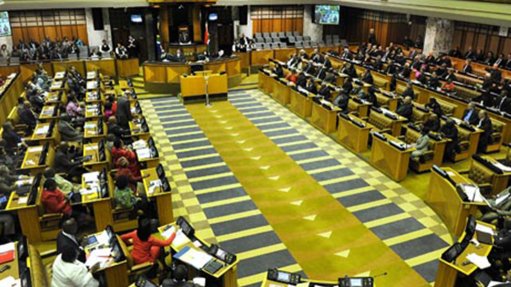
Photo by: GCIS
Less than half South Africa's citizens have trust in national leaders and Parliament, according to the 2014 SA Reconciliation Barometer released on Wednesday.
In 2003, 54.5% of people agreed in a survey that national leaders could be trusted and 61.6% agreed they could trust Parliament.
By 2013, trust levels had decreased to 48.3% and 48.9% respectively.
Black participants had the highest levels of trust in these categories and white participants the lowest.
Confidence levels in the presidency, Parliament, and national and provincial governments decreased between 2006 and 2013.
While confidence in local government had consistently been the lowest of these categories it was the only institution whose levels increased between 2006 and 2013, from 50.3% to 54.5%.
The barometer hypothesised that in order for reconciliation to take root, citizens had to view political leaders, public institutions, and government as legitimate, accountable, and responsive.
It further stated it was difficult to assess how much trust was ideal for a healthy democratic political culture.
The barometer, published by the Institute for Justice and Reconciliation (IJR), looked at data collected between 2003 and 2013.
The findings were contained in a report titled "Reflecting on Reconciliation: Lessons from the Past, Prospects for the Future".
Data was collected during face-to-face interviews with a nationally representative sample across all provinces. The 2013 sample was around 1989 metro inhabitants and 1601 non-metro inhabitants.
IJR executive director Fanie du Toit said 2014 had been a year of fragmentation, specifically in labour, business, and Parliament.
"In this whole climate, I think it is very important to take a sober, sober stance and take stock of what is actually happening."
Last year, South Africans had the highest levels of confidence in religious institutions and the public protector, and the lowest confidence levels in political parties and the police.
The report noted that overall confidence levels dipped in 2009 following the African National Congress's Polokwane conference at the end of 2007.
Confidence levels rose again and then dropped after the ANC's national elective conference in Mangaung in 2012.
"We have yet to see whether this pattern continues, but it may demonstrate the effect which divisive politicking within the ANC has on the confidence and trust of the citizenry in the political sphere," the report states.
Click here to download the report